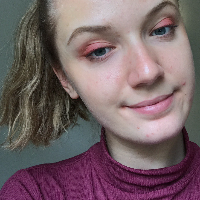5 Ways To Help Somebody Struggling With Body Image
When was it that our bodies became commodities exchanged for the praise and approval of others?
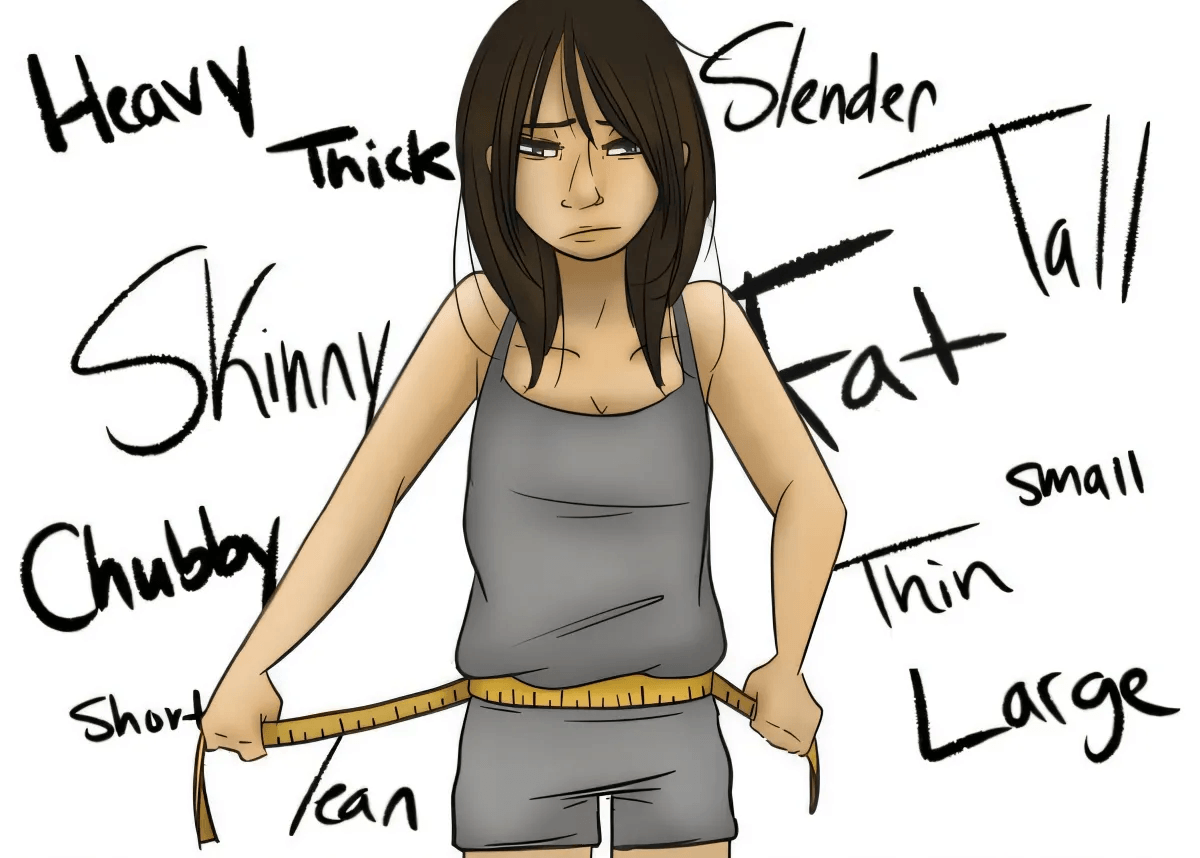
Was it the moment when, in a 2009 interview, Kate Moss offered “nothing tastes as good as skinny feels” as a mantra to live by? Or was it earlier, when Moss herself was made the face of an industry glamorizing the emaciated silhouettes of heroin addicts?
Wherever society’s fixation with bodies began, one thing that is certain is the harm it causes collectively: In Britain today, 35% of adults feel depressed, 20% feel ashamed and 19% feel disgusted over their bodies. Significant proportions of our world’s population are living tethered to feelings of disdain towards their bodies.
These vessels that, without which, life itself would be impossible, have been manufactured into objects of enmity and opposition - feelings that have only grown with the rise of social media.
So, how can we relieve our struggles with body image? How can we equip ourselves to defend against doctored celebrity snapshots, feeds swarmed with Facetuned selfies, and body-focused criticisms being the conversational norm?
Here are five strategies that I have developed to help myself and the people around me maintain positive, confidence-inspiring relationships with their bodies:
1. Consume Media Consciously

First, I practice (and encourage those in my life to engage in) conscious consumption.
This means that I promote only engaging with content that exhibits real, natural, and unmanipulated bodies. Taking this step forms a solid foundation from which you can begin to unlearn the scrutiny and intolerance that self-esteem, identity, and body image develop out of in this digital age.
When we cast our minds back to our childhoods, I am sure we can all recollect a hazy memory of encountering a beauty stereotype.
For me, growing up in the early 2000s, it was the lithe and toned stars of pop and R&B. Britney Spears, with her small waist and defined stomach was an example of what I learned to deem ‘attractive’.
When you are seeing this standard being repeated across music videos, films, television shows, and advertising - it ingrains a subtle expectation: This is what a woman who achieves success, popularity, and fame looks like. This is the standard you should emulate if you want to be as beautiful as these women.
Of course, we all want to be beautiful. We learn at a formative age that beauty is synonymous with attention and praise, and later in life, that beauty is integral to attraction and love. We are, at our core, social beings - we crave intimacy and connection with one another more than anything else - so this interweaving of beauty and love is naturally influential to us.
Therefore, if we have a skewed or singular perception of beauty, we may unconsciously consider ourselves unworthy of love and affection - which can be extremely damaging to our sense of self.
Due to this, I place real importance on engaging with people that showcase their natural bodies. Whether you are striving for body neutrality or positivity, opening your eyes to the reality of what most people’s bodies look like can transform the way that you see yourself.
Whilst there’s plenty of diversity to be seen between bodies, we all share common features that have been manufactured into insecurities: Body acne, body hair, cellulite, stretch marks, stomach rolls, soft thighs, and upper arms.
Discovering that whilst these features are underrepresented in mainstream media and celebrity’s curated snapshots, they are extremely common and in real life, is crucial to unlearning the stigma we project onto our own bodies.
2. Reflect on Body-Focused Feelings
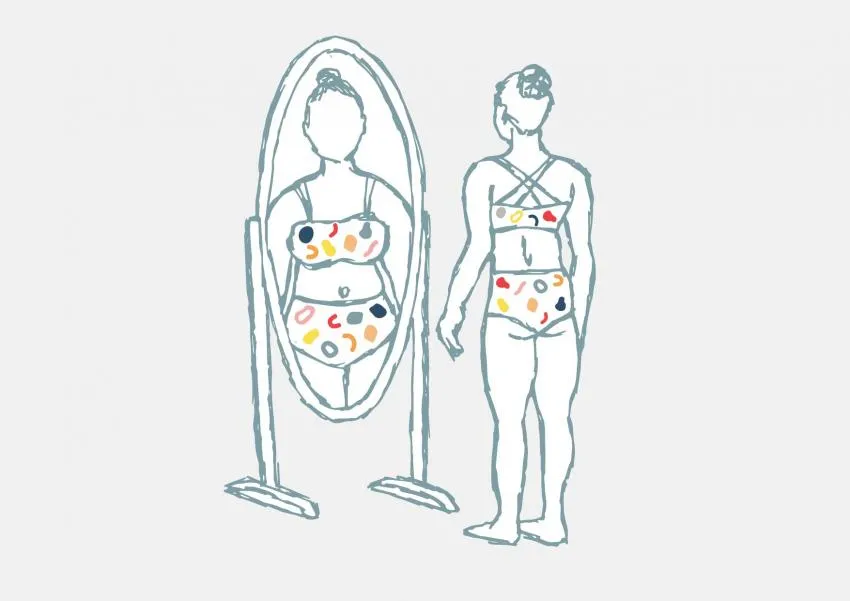
Second, I prompt myself and those in my circle to examine the origins of their feelings towards their bodies.
Whenever I notice myself being critical of my body, I ask myself whether I am certain that this is my opinion, my own personal judgment, that I am passing.
I always find that, with a little digging, I unearth something that did not originally stem from me. Whether it is a comment that was made about me in the past, something I learned from the people around me, or some media I consumed, my own feelings of insignificance usually feed off of something external that I have absorbed.
When this kind of realisation occurs, I find the best action to take is to ask yourself whether you value the belief and its source. Is this belief fact or does it represent somebody’s opinion? Do I value the source this belief has come from? May the source of this belief profit in some way from my insecurity?
Approaching your insecurity with curiosity will often lead to the discovery that your shame is not your own. You are simply a host for a corporation’s advertising technique, somebody’s projections of their own negative body image, or an image retouched to conceal another person’s feelings of insignificance.
Having the insight to navigate our feelings of insecurity, disappointment, and resentment in this way is critical to stopping the cycle of self-punishment for existing at sizes and shapes that our bodies are content with.
3. Rewrite the Narrative on Sizing Up
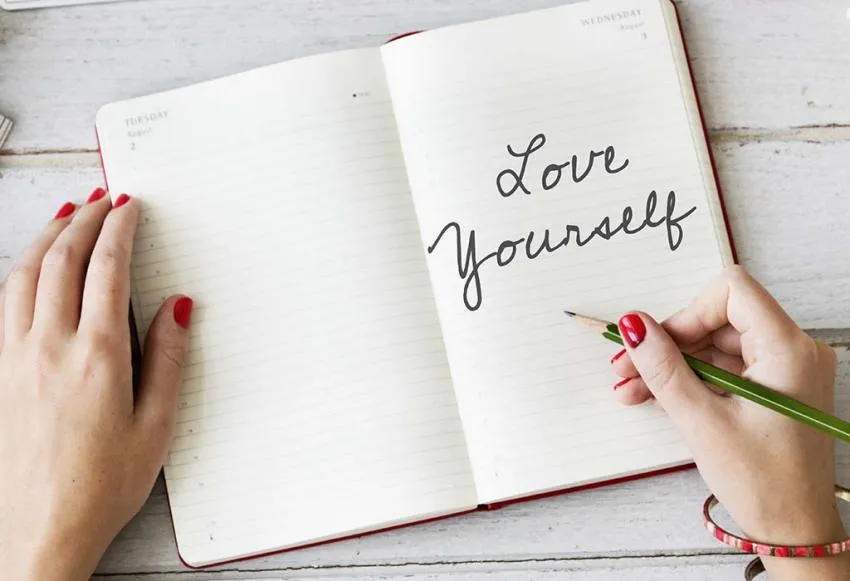
Third, I challenge myself and others to rewrite the narrative that is perpetuated around weight gain and ‘sizing up’.
In society today, weight gain is celebrated for two reasons: A person is underweight, recovering from an eating disorder, or has gained weight in the ‘right’ places in the ‘right way’.
What does this second form of weight gain look like?
For women, it takes shape like an hourglass with sizeable breasts, prominent hips, and a plump butt - a distribution of weight that not many bodies naturally configure. For men, weight gain is celebrated only in conjunction with working towards a toned torso and visible all-over muscles.
I try to promote a different take:
From the moment we are born, our bodies are developing. Between birth and the passing of a child’s first year, so much change occurs that they become unrecognisable. But this, we celebrate - because we have been taught that it is natural for a child to grow and evolve, whereas adults should stop developing at a certain age.
How can we accept this as truth when our bodies are constantly adapting to different things?
Our body’s job is to aid us in each new phase of life we enter - an effort that weight gain can naturally follow.
As we age, our bodies may rely on varying stores of weight to facilitate the changes occurring, such as men developing peak muscle mass and women becoming their most fertile between twenty and thirty years of age.
Doesn’t it follow that a woman’s stomach will not remain flat as her body develops a layer of fat to protect her reproductive organs? Would it not make sense for a man’s fat store to develop in conjunction with his muscle density?
Once we are disposed to view our bodies as intelligent, adaptable beings and recognise the amazing feats they facilitate, weight gain and ‘sizing up’ become things that we’re able to accept - and even move towards appreciating.
4. Expose the Senselessness of Body-shaming
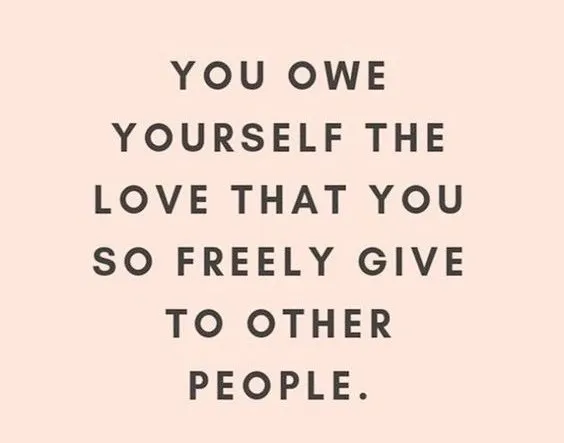
Fourth, I try to expose the senselessness of our body-shaming perspectives.
To do this, I might ask somebody struggling with body image to describe the most special people in their life.
How do you think they might respond?
“My mum is the most caring person. Whatever problem you bring to her, she will sit and work through it with you.”
“My boyfriend is so funny - I swear it’s superhuman! If I am ever down, he knows just the thing to lift me up and break my bad mood.”
“My best friend is so encouraging, she sees things in me that nobody else does. She inspires me to be the best version of myself!”
When we describe those close to us, we realise that we see people for who they are - not how they look.
To us, the bodies of our loved ones are just vessels carrying the real thing we value - them: Their ability to uplift us, nurture us and help us to enjoy life is what we find enchanting about them, not their shape or size.
Thinking about how little the appearances of people’s bodies influence our feelings towards them can help us to challenge negative thoughts about ourselves.
Why should your body make you feel unworthy when it leaves another’s value unaffected? Why should your body diminish you when others feel pride and pursue life at similar shapes and sizes? How does the way your body looks actually influence your abilities, your core qualities, who you are at all?
Learning that our value and worth are intrinsic and unaltered by our appearance can help us place less emphasis on the way our bodies look. The less energy we invest in resenting our bodies and holding ourselves back because of them, the more time we can spend living life through them.
5. Take Control of Body-Focused Feelings
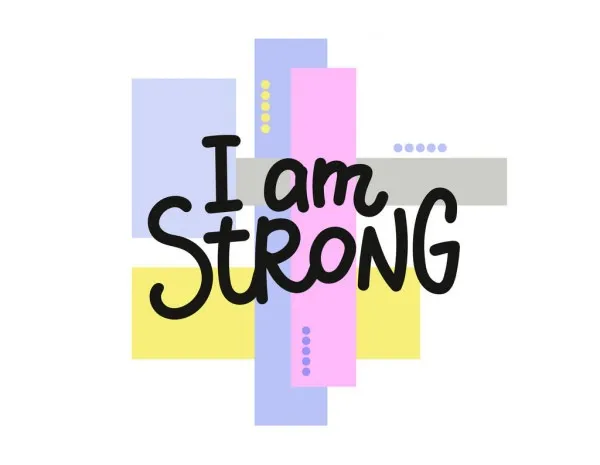
Finally, the fifth way I believe you can help somebody struggling with body image is to teach them that they are in control of how they feel about themselves.
No, this does not mean that we live in a utopia where advertising is not portraying natural features as flaws, or where celebrities are not claiming their surgically enhanced bodies as the result of exercise.
No, this does not mean that we are immune to the narratives, historic and modern, that surround our bodies’ shapes and sizes.
What this means is that we have the choice to let these influences penetrate our sense of self, our self-worth, our confidence - or, to stop them at the gates of our mind.
We can choose to switch off from content and discussions that glorify unrealistic standards and promote unhealthy ways of relating to our bodies. We can choose to embrace the notion that beauty is individual. We can choose to accept that our bodies are not static - that it’s in our DNA for them to fluctuate and adapt as we move through life.
Equipping ourselves with alternative narratives to what mainstream media raised us on is key to building resilience against the mechanisms that pervade today: The companies developing teas to flatten stomachs and corsets to contort bodies will have no insecurity to profit from if we do not allow the beliefs they rely on make us feel inadequate.
Realising that we have the power to fortify ourselves against the trends, beliefs and corporate angles surrounding our bodies is key to reclaiming our feelings towards them. Once we learn that we have the ability to appreciate our bodies in any shape or size, we begin to develop relationships with them that allow us to live freely.
And, to counter the likes of Kate Moss, they say freedom tastes sweet.
Opinions and Perspectives
The conscious consumption part has totally transformed my social media experience
Been feeling down about my body lately but this article helped shift my perspective
Really powerful message about choosing what influences we allow to affect us
Working on this in therapy and these tips align perfectly with what we discuss
Amazing how much power we give to random beauty standards that someone just made up
The article makes great points about how we view our loved ones versus ourselves
This reminds me to be more mindful of the comments I make about my own body around others
Started implementing these strategies with my friend group. We're all feeling more positive
Never realized how much those early 2000s music videos affected my body image until reading this
Interesting point about corporations profiting from our insecurities. Really makes you think
The conscious media consumption tip works wonders. My feed is now full of diverse, real bodies
Sometimes I catch myself making judgments and have to remind myself what I learned from this kind of article
I found the section about questioning the source of our beliefs particularly helpful
The part about bodies adapting throughout life stages really helped me accept my postpartum changes
Been working on this with my teenager. It's tough when they're surrounded by unrealistic standards
The rise of social media has definitely made this worse. We're constantly comparing ourselves to filtered versions of others
Hard disagree with the previous comment. Health and body shaming are different things
Not sure I agree with everything here. Some people genuinely need to focus on their health
I've started asking myself where my negative thoughts come from, just like the article suggests. It's eye-opening
The section about sizing up helped me understand why I've been so hard on myself lately
Fascinating how they mention body image affecting men too. We often forget it's not just a women's issue
My therapist suggested similar strategies. They really do work if you commit to them
I find it interesting how the article connects our childhood experiences to current body image issues
The point about bodies being vessels for life rather than objects for criticism really resonated with me
Anyone else notice how the beauty standard seems to change every few years? Makes you realize how arbitrary it all is
I wish I'd read something like this when I was younger. So much time wasted worrying about impossible standards
The suggestion about reframing weight gain as natural body adaptation is fascinating. Never considered it that way
Totally agree with consciously choosing what media we consume. I've become much pickier about what I follow online
That statistic about 35% of British adults feeling depressed about their bodies is heartbreaking but not surprising
I struggled with this for years until I realized most celebrity photos are heavily edited. Changed my whole perspective
The media consumption part is spot on. I had to unfollow so many accounts that were making me feel terrible about myself
I love how the article emphasizes that we don't judge our loved ones by their appearance. Really puts things in perspective
The part about examining where our body image issues come from really hit home. Mine definitely started with comments from family members
Actually gained more confidence after I started following accounts showing real, unedited bodies. Makes such a difference to see normal people
The Kate Moss quote mentioned at the start still makes me angry. Such harmful messaging that affected a whole generation
I really appreciate how this article breaks down the impact of media messaging on our body image. Never thought about it that way before
